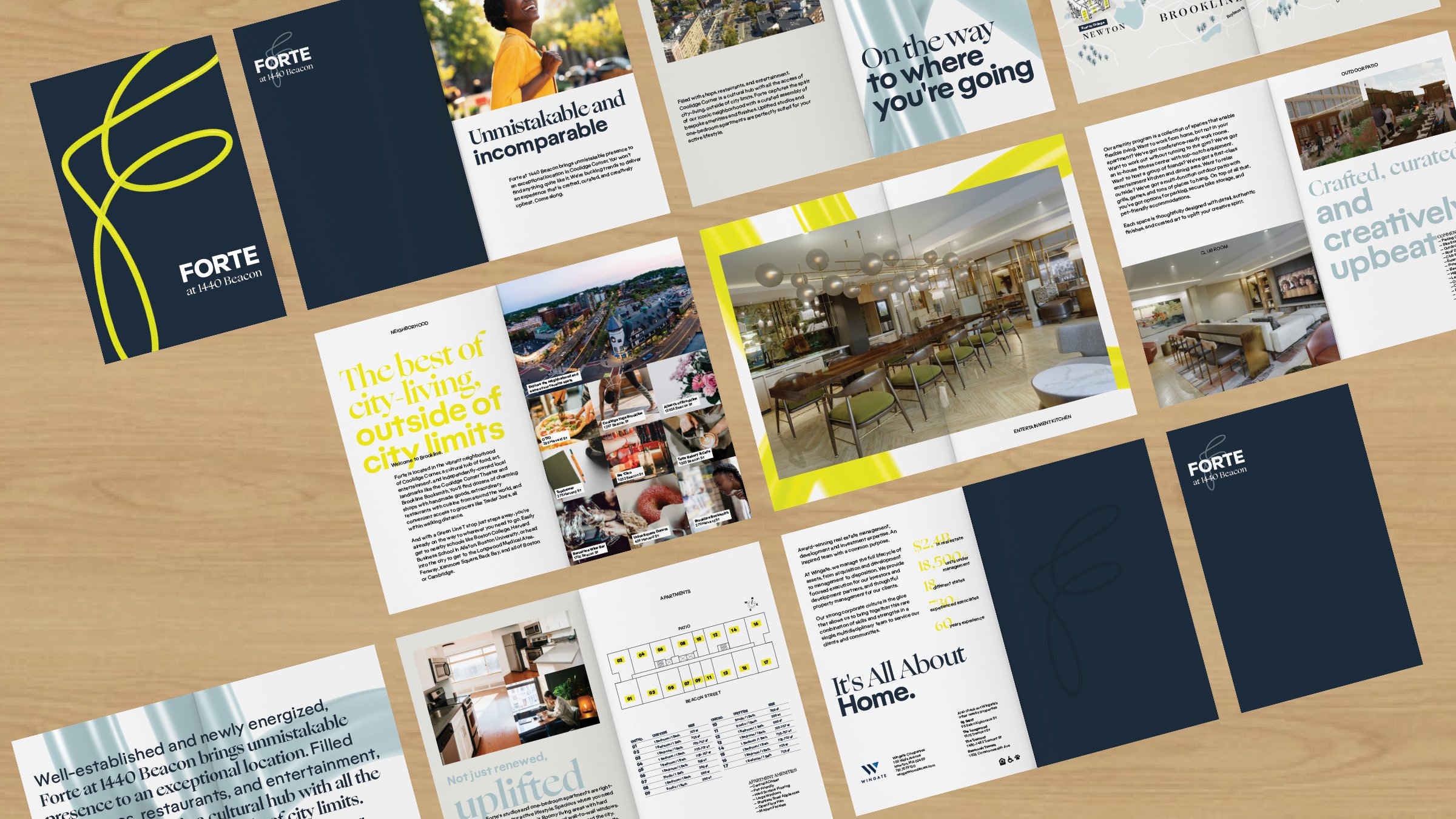Your corporate values don't define your brand
Build Mode™ Issue 06.2024It’s the fifth issue of Build Mode (and the first weekend edition!) where I share brand insights to help you level up your business. Thanks for being here. We have an ambitious group of professionals working in real estate, architecture, engineering, construction, marketing, design, and development. Welcome all!
Today’s issue is all about brand personality. Every brand has a personality – even if that personality is a corporate copycat full of industry jargon (sorry, too harsh?) – which is often the case with corporate communication.
Corporate values might initially seem like a set of personality traits. You know the ones…
Integrity
Innovation
Dedication
Collaboration
Respect
But unlike personality traits, company values are the core principles and beliefs that guide a company’s internal operations. Whether true and unique, or generic and plastered on your office walls, values like these are how a company conducts business and interacts with stakeholders.
Yes, they are important, for hiring, for managing projects, for client and stakeholder relationships, for employee actions, for strategic planning. They serve as the company’s internal compass to maintain ethical and operational standards, but they don't define how your brand behaves.
What brand personality is:
Brand personality, unlike company values, is a set of human characteristics and attributes that a brand embodies internally and expresses externally. It differentiates the brand in the market and helps establish a connection with the brand’s audience.
Brand personality shapes how the brand communicates and interacts with its audience. It influences marketing, design, and customer interactions, ensuring the brand's perception aligns with its identity and appeals to its target audience.
While company values and brand personality share similarities in providing guidance and creating consistency, they serve different purposes.
→ Values are internally focused, guiding company culture
→ Personality traits are externally focused, shaping brand perception
→ Values influence internal governance and operations
→ Personality traits inspire branding, marketing, and customer experiences
→ Values are abstract principles
→ Personality traits are tangible characteristics with visual and verbal implications
→ Values are how a company operates
→ Personality is how a brand communicates
Why brand personality matters:
A set of traits that are well-defined creates a brand personality that can show up as itself. The most intriguing personality is also one that is well-rounded, with traits that can dial up or down depending on the context, whether you’re communicating on social media or in an annual report. Think of it like a sound mixer. Sometimes you want to be bolder, sometimes need to be empathetic. There’s a time and place for both. Your audience will get to know you, and will know what to expect from you, so you can continue to be relevant and resonate with them.
There are many ways to establish a set of personality traits, and maybe you’ve come across a few brand exercises as you’ve developed your own brand. But the one question that I’ve found to be most effective in establish a well-defined and well-rounded set of characteristics is this:
If you could choose a celebrity spokesperson, a brand ambassador, who would you choose and why? What qualities do they have that you associate with your brand?
For almost every brand project I’ve been a part of, this question (which is usually a pre-work assignment before a strategy session), has been the most revealing, influential, insightful bit of input from the project team. Below are a few project examples of how the answer to this question inspired a set of personality traits, and the outward expression of the brand: how it looks, sounds, and acts.
Topograph
Topograph, the new multifamily development in Auburn, has a set of traits that inspired its outdoor and adventurous spirit. We were inspired by well-known personalities like Ryan Reynolds, Bear Grylls, Reese Witherspoon, Zac Efron, Matthew McConaughey, Jennifer Lawrence, and rock climber Alex Honnold. This combination inspired our set of four personality traits:
→ Natural
→ Invigorating
→ Real
→ Daring
How do those personality traits show up in the brand?
Natural means the brand has style that is casual, effortless and simple. You won’t find urbanites in suits here! The brand makes it easy to feel relaxed, and they balance comfort with a sense of taste and timelessness. Invigorating means the brand is also energetic and full of vitality. They can inspire others with a focus on health and wellness, and match their audience’s ambition with a lively spirit. Real is a quality that keeps the brand grounded and down-to-earth. The energetic traits are balanced with this this sense of warmth and approachability. And finally, daring means they brand can be bold, brave, and adventurous. Like the development team behind the project, the brand can also take some risks and operate outside of its comfort zone, because they’re optimistic the process is worthwhile and rewarding.
Forte
Forte, a repositioned community in Brookline, has a completely different set of traits, because it’s a completely different type of community for a completely different target audience. Not every apartment community is for the same, stereotypical emerging professional, growing family, and empty nester! The project team came up with some fascinating responses for our brand ambassadors. There was Jimmy Fallon, Millie Bobby Brown, Harry Styles, Lady Gaga, Lenny Kravitz, Robert Downey, Jr., Ben Affleck, and the cast from Grey’s Anatomy. This group of personalities, let us to our personality traits:
→ Unmistakable
→ Young at heart / Wise beyond our years
→ Genuine
→ Reliable
→ Creatively upbeat
How do those personality traits show up in the brand?
Unmistakable means that the brand has a sense of class and charm, without the stuffiness. Young at heart was a unique trait we arrived at because of the repositioning of the property. Despite a well-established presence in the neighborhood, we still wanted the brand to be lively to appeal to a younger demographic and signal a newly energized community. Genuine is the quality of just being plain nice, like you want to hold the elevator door open for your neighbor and not slam the ‘close door’ button to avoid them. (Can a brand personality influence whether a resident holds the elevator door open? I hope so!) Creatively upbeat means the brand conveys an optimistic and inspiring tone through expressive visual and verbal language.
Cambridge Community Housing
My latest project (and newest case study), Cambridge Community Housing is a scattered site portfolio in the Cambridge area with a brand presence for not just one community, but an asset collection of over 700 units in 65 buildings. Working with a core team, we arrived at celebrities like Jon Bon Jovi for his generational versatility and philanthropic community outreach, Selena Gomez for her influential presence across diverse populations, and one of the most unique responses… a drum circle! We imagined a celebratory event with residents participating in a drum circle, which led to a discussion about inclusivity and participatory events for the community. Answers like these are why I love this question! These responses led to our personality traits:
→ Empathetic
→ Dependable
→ Inclusive
→ Pragmatic
→ Dynamic
How do those personality traits show up in the brand?
Empathetic and dependable are related to how the management firm cares for its community, showing understanding, and providing reassurance even in unpredictable times. We represent inclusive through the design of the symbol, segmented elements coming together to form a singular icon. Pragmatic means its rational and designed from simple shapes, geometric principles to for a timeless symbol. And dynamic comes through with the bright and energetic blue and movement within the logo. When defining strong brand characteristics, it becomes easier to translate these into tangible expressions, ensuring consistency across all touchpoints, from marketing materials to customer interactions.
What you can next:
Just as I’ve worked with client teams on these projects to establish their ‘celebrity spokespeople’ and the personality traits that define the brands, you too can think of who your celebrity spokesperson or brand ambassador would be.
Who would you choose and why?
What qualities do they have that you associate with your brand?
Have fun with it!
Once you do, let me know who your celebrity spokesperson is. I'd be interested to hear about it!
That’s all for the June issue of Build Mode!
Thanks again for being here.
If you have any ideas to share, or questions to ask, reach out. I’m open to hearing your thoughts and making this most useful message in your inbox this week. If you think this might help a friend, feel free to forward it to them and encourage them to join us.
Wishing you a wonderful month of June and hope to talk soon!
Best.
Kenny Isidoro
See my latest on Instagram, LinkedIn, or feel free to book a call.
Personality is an unbroken series of successful gestures.
— F. Scott Fitzgerald
Subscribe to Build Mode™
a monthly update with brand insights and how they can apply to your practice and your projects. Issues drop on the first of each month. Feel free to unsubscribe if the updates aren't valuable for you. No hard feelings.




